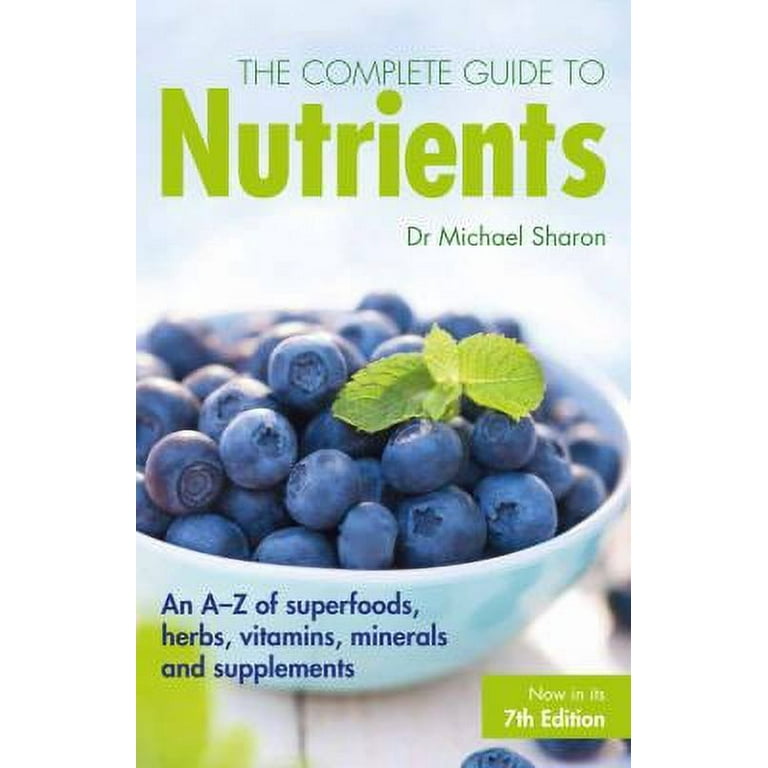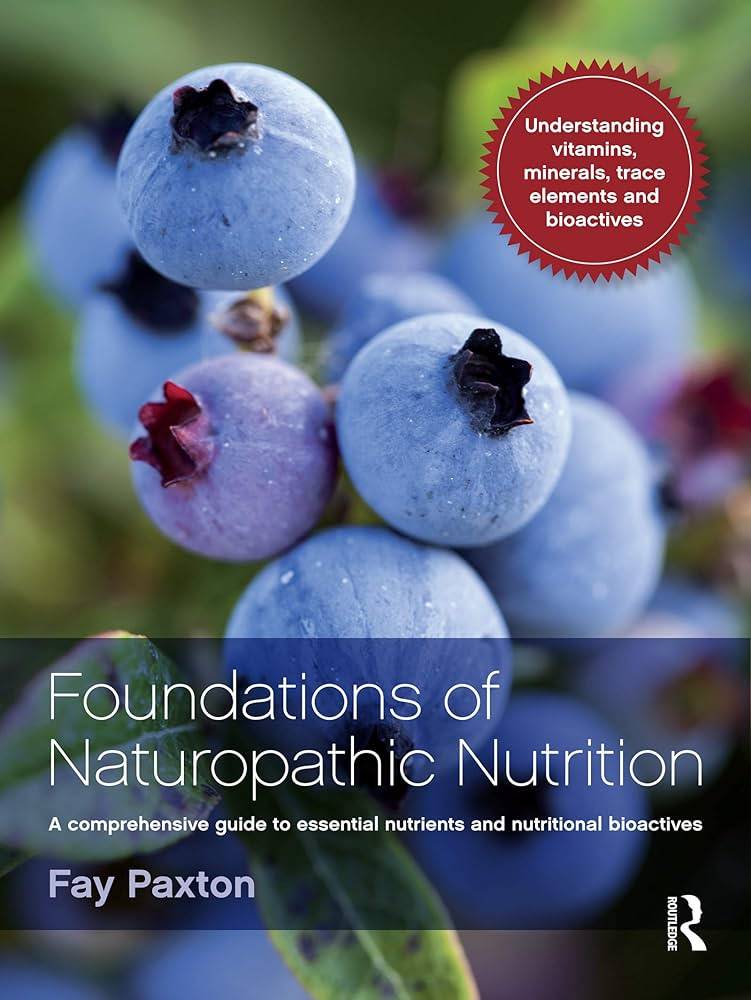What are nutrients and why are they important? Explore the various types of nutrients, their sources, and how they contribute to your overall well-being.Nutrients are essential substances found in food that provide nourishment to the body. They are necessary for growth, development, and maintenance of bodily functions.
Eating a balanced diet rich in nutrients is crucial for maintaining good health and preventing nutrient deficiencies. Nutrients can be classified into two categories: macronutrients and micronutrients. Carbohydrates, proteins, and fats are macronutrients that support a variety of body activities and give us energy.
Micronutrients include vitamins and minerals, which are required in smaller quantities but are equally important for overall health. We will explore the different types of nutrients, their functions, and the importance of consuming a well-rounded diet to meet our nutritional needs. Understanding the role of nutrients in our body can help us make informed decisions about our food choices and lead a healthy lifestyle. So, let’s dive in and discover the fascinating world of nutrients.
The Basics Of Nutrients
What Are Nutrients?
Nutrients are substances that provide nourishment to the body, playing a vital role in maintaining overall health and well-being. They are essential for growth, development, and the proper functioning of organs and systems. Our body requires these nutrients in specific amounts to carry out various biological processes efficiently.
Types Of Nutrients
There are several types of nutrients, each with its own unique role and importance:
- Carbohydrates:
- Carbohydrates are the body’s main source of energy, providing fuel for daily activities and bodily functions.
- They can be found in foods like grains, fruits, vegetables, and dairy products.
- Proteins:
- The synthesis, maintenance, and repair of bodily tissues depend on proteins.
- They are made up of amino acids and can be obtained through sources like meat, fish, legumes, and dairy products.
- Fats:
- Fats are a concentrated source of energy and are necessary for the absorption of fat-soluble vitamins.
- They can be obtained from sources like oils, butter, nuts, and avocados.
- Vitamins and Minerals:
- Vitamins and minerals are vital for various physiological processes, including enzyme function and immune system support.
- They can be found in foods like fruits, vegetables, whole grains, and dairy products.
- Water:
- Water is essential for maintaining proper hydration levels in the body and facilitating important bodily functions.
- It can be obtained through drinking water, beverages, and watery foods like fruits and vegetables.
Each of these nutrients plays a critical role in supporting our health and well-being. It is important to consume a balanced diet that includes a variety of nutrient-rich foods to ensure an adequate intake of these essential substances.
Macronutrients
Macronutrients are the vital nutrients that the body needs in significant quantities.
Carbohydrates
The body uses carbohydrates as its primary energy source.
Proteins
Tissue construction and repair depend on proteins.
Fats
Fats are crucial for energy storage and hormone production in the body…
Micronutrients
Micronutrients, consisting of Vitamins and Minerals, are essential for overall health.
Vitamins
Vitamins are organic compounds needed in small quantities for various bodily functions.
Minerals
Minerals are inorganic substances crucial for maintaining proper bodily functions.

Credit: www.amazon.com
Understanding Essential Nutrients
Nutrients are essential for our body to function properly. They are substances that provide energy, promote growth, and regulate various bodily functions. Understanding essential nutrients is crucial, as they are the ones our body cannot produce on its own and must obtain through our diet. In this section, we will explore the difference between essential and non-essential nutrients and the importance of essential nutrients for our overall health and well-being.
Essential Vs. Non-essential Nutrients
Essential nutrients are substances that our body requires for optimal health and proper functioning but cannot produce internally. These nutrients need to be obtained from external sources, such as food or supplements. On the other hand, non-essential nutrients are substances that our body can produce on its own, although consuming them through diet can still be beneficial.
Here’s a breakdown of some essential and non-essential nutrients:
| Essential Nutrients | Non-essential Nutrients |
|---|---|
| Vitamins | Cholesterol |
| Minerals | Glutamine |
| Proteins | Coenzyme Q10 |
| Carbohydrates | Arginine |
| Fats | Taurine |
Importance Of Essential Nutrients
Important nutrients are necessary for preserving our general health and wellbeing.They are responsible for providing energy, supporting growth, repairing body tissues, and regulating various physiological processes. Without these essential nutrients, our body would not be able to perform its functions optimally.
Here are some key points highlighting the importance of essential nutrients:
- Energy Production: Carbohydrates, proteins, and fats are macronutrients that supply the necessary energy for our body to perform daily activities.
- Growth and Development: Essential nutrients such as vitamins, minerals, and proteins are crucial for proper growth and development, especially during childhood and adolescence.
- Immune Function: Certain vitamins and minerals, such as vitamin C and zinc, are essential for maintaining a healthy immune system, which helps protect our body against infections and diseases.
- Organ Function: Essential nutrients are needed for the proper functioning of various organs and systems, including the heart, brain, liver, and kidneys.
- Cellular Processes: Essential nutrients play a role in various cellular processes, including DNA synthesis, enzyme production, and cell signaling.
It is important to note that a balanced diet that includes a variety of foods is necessary to ensure an adequate intake of essential nutrients. By understanding the difference between essential and non-essential nutrients, as well as their importance, we can make informed choices about our diet and take steps towards maintaining good health.

Nutrient Absorption
When it comes to nutrient absorption, it’s essential to understand the process through which our bodies take in and utilize these vital substances. Nutrient absorption occurs primarily within the digestive system, where macronutrients and micronutrients are broken down and absorbed into the bloodstream. The efficiency of this process can be influenced by various factors, ultimately impacting our overall health and well-being.
The Digestive Process
The digestive process plays a pivotal role in nutrient absorption. Food undergoes mechanical and chemical breakdown in the mouth, stomach, and small intestine, where essential nutrients are released and made available for absorption. Enzymes break down carbohydrates, proteins, and fats into smaller molecules that can be absorbed by the body, ensuring a steady supply of energy and essential building blocks for various cellular functions.
Factors Affecting Absorption
Several factors can affect the absorption of nutrients. These include the quality of the food consumed, the presence of digestive enzymes, the health of the gastrointestinal tract, and individual differences in metabolic efficiency. Additionally, certain medical conditions and medications may interfere with nutrient absorption, leading to deficiencies and related health issues. It’s crucial to consider these factors when assessing the overall nutritional status of an individual and addressing potential absorption challenges.

Credit: www.walmart.com
Sources Of Nutrients
Nutrients are essential for the growth, repair, and maintenance of the body. They are derived from various food sources and are necessary for optimal health. Adequate consumption of nutrients through a balanced diet is vital to ensuring proper bodily functions. Let’s explore plant-based and animal-based sources of nutrients.
Plant-based Sources
Plant-based sources of nutrients include:
- Fruits and vegetables
- Whole grains
- Nuts and seeds
- Legumes (such as beans, lentils, and chickpeas)
Animal-based Sources
Animal-based sources of nutrients include:
- Lean meats, poultry, and seafood
- Dairy goods (including cheese, yogurt, and milk)
- Eggs
Nutrient Deficiency And Toxicity
Having a balanced and nourishing diet is essential for maintaining good health. Nutrients are the building blocks of our body, and they play a crucial role in various bodily functions. However, an imbalance in nutrient intake can lead to nutrient deficiency or toxicity, both of which can have detrimental effects on our health and well-being.
Signs Of Deficiency
When our diet lacks essential nutrients, our body may exhibit certain signs that indicate nutrient deficiency. These signs can vary depending on the specific nutrient that is deficient. Here are some common signs of nutrient deficiency:
- Weak immune system, making it easier to fall ill
- Fatigue and lack of energy
- Poor cognitive function and difficulty concentrating
- Delayed wound healing
- Brittle hair and nails
- Slow growth and development (in children)
If you experience any of these signs, it’s important to consult a healthcare professional who can guide you on the appropriate steps to take to address the deficiency.
Effects Of Toxicity
While deficiency indicates an insufficient intake of nutrients, toxicity occurs when the body gets an excessive amount of certain nutrients. This can happen due to overconsumption of certain foods, supplements, or exposure to toxic substances. The effects of nutrient toxicity can vary depending on the specific nutrient involved. Here are some common effects:
- Mineral toxicity: Excessive intake of minerals like iron or zinc can lead to digestive issues, organ damage, and impaired nutrient absorption.
- Vitamin toxicity: Consuming an excess of fat-soluble vitamins like vitamins A, D, E, and K can lead to symptoms such as nausea, vomiting, joint pain, and in severe cases, organ damage.
- Heavy metal toxicity: Exposure to heavy metals like lead, mercury, or cadmium can have long-lasting effects on various body systems and may lead to neurological disorders, organ damage, and impaired cognitive function.
It’s important to consume nutrients in the recommended amounts and be cautious about any excessive intake to prevent nutrient toxicity and related health problems.

Credit: www.walmart.com
Balanced Nutrition
Understanding balanced nutrition is essential for maintaining overall health and well-being. It involves creating a balanced diet that provides the necessary nutrients for the body to function optimally. Meal planning plays a vital role in ensuring that individuals receive a variety of nutrients to support their health.
Creating A Balanced Diet
A balanced diet includes a mix of nutrients such as carbohydrates, proteins, fats, vitamins, and minerals. Each nutrient plays a specific role in keeping the body healthy and functioning properly. By incorporating a variety of foods in the right proportions, individuals can meet their nutritional needs.
Meal Planning
Meal planning involves thoughtful consideration of the foods you consume to ensure you are getting the necessary nutrients. This process helps individuals maintain a balanced diet and prevent deficiencies. By planning meals ahead of time, you can make healthier choices and avoid relying on convenient but less nutritious options.
Frequently Asked Questions On What Are Nutrients
What Are Nutrients In Short Answer?
Nutrients are essential compounds found in food that provide nourishment and energy for the body. They include vitamins, minerals, protein, carbohydrates, and fats, all vital for proper functioning and overall health.
What Are The 7 Nutrients?
The seven essential nutrients are carbohydrates, proteins, fats, vitamins, minerals, fiber, and water. These nutrients are essential for good health and wellbeing in general.
What Are The 5 Main Nutrients?
The five main nutrients are carbohydrates, proteins, fats, vitamins, and minerals essential for overall health.
What Are The 3 Main Types Of Nutrients?
Proteins, lipids, and carbs are the three primary categories of nutrition. These nutrients provide energy and essential building blocks for the body.
Conclusion
To understand the importance of nutrients, we need to recognize their crucial role in maintaining our overall well-being. The right balance of vitamins, minerals, proteins, carbohydrates, and fats has a direct impact on our energy levels, immune system, and organ function.
By prioritizing a nutrient-rich diet, we can optimize our health, support proper growth and development, and reduce the risk of chronic diseases. Remember, nourishing our bodies with the right nutrients is a lifelong investment in our overall health and vitality.

I am a health writer and blogger based in the US and UK. I have been with the health department for six years. And I give advice on various health problems and solutions. I have a lot of experience in health matters and I share it here.

